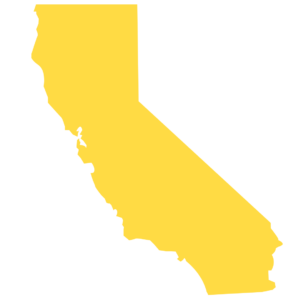Legislation for Thermal Energy Networks & Pilots
States across the country have passed laws to support thermal energy networks (TENs). Some laws authorize or require regulated utilities to build or pilot TENs projects. Others unlock financing mechanisms or establish commissions that would study the feasibility of TENs.
In many states, legislation aims to prove that TENs are practical for utilities, secure for workers, and affordable for customers, assisting with a transition of the gas system to a clean energy system.
Legislation By State
States are listed chronologically, with the earliest adopters at the top.

Massachusetts
Massachusetts was the first state to enshrine provisions for utility TEN pilots in law.
 2021: S.2995, An Act Creating A Next-Generation Roadmap for Massachusetts Climate Policy, was the first law in the nation to allow gas utility companies to pilot geothermal networks.
2021: S.2995, An Act Creating A Next-Generation Roadmap for Massachusetts Climate Policy, was the first law in the nation to allow gas utility companies to pilot geothermal networks.
- By 2024, five pilots had been approved in Massachusetts. National Grid has been approved for four pilots, and selected two sites (in Lowell and Boston). And in June 2024, Eversource Energy began operation of the nation’s first utility geothermal network pilot. Located in Framingham, MA, the system provides heating and cooling to 140 customers in homes and businesses.
 2022: H.5060, An Act Driving Clean Energy and Offshore Wind, added provisions specifying that TEN pilots can be paid for with funds from the state’s pipe replacement program, known as the Gas System Enhancement Plan (which our friends at HEET explain well here).
2022: H.5060, An Act Driving Clean Energy and Offshore Wind, added provisions specifying that TEN pilots can be paid for with funds from the state’s pipe replacement program, known as the Gas System Enhancement Plan (which our friends at HEET explain well here).
 2024: S.2967, “An Act promoting a clean energy grid, advancing equity and protecting ratepayers,” is sweeping climate legislation that reforms the gas distribution system, among other goals. The bill includes several key provisions that will allow the state’s gas utilities to evolve into thermal utilities:
2024: S.2967, “An Act promoting a clean energy grid, advancing equity and protecting ratepayers,” is sweeping climate legislation that reforms the gas distribution system, among other goals. The bill includes several key provisions that will allow the state’s gas utilities to evolve into thermal utilities:
- Changes the definition of a gas company to allow sale and distribution of non-emitting thermal energy.
- Places proposals for new gas infrastructure under greater scrutiny by allowing the Department of Public Utilities to consider whether gas expansion is in the public interest in terms of costs and climate goals, and whether there is a feasible alternative to gas service.
- Modernizes the utility’s “obligation to serve” methane gas by allowing a utility to provide non-combusting thermal energy to a customer instead of gas.

Minnesota
 2021: 216b.2427, the Natural Gas Innovation Act, encouraged gas utilities to propose “innovation plans” that consider alternatives to gas, including electrification, district thermal energy, carbon capture and storage, hydrogen, RNG, and others. It mandated that gas companies with more than 800,000 customers include a district energy pilot in their innovation plans.
2021: 216b.2427, the Natural Gas Innovation Act, encouraged gas utilities to propose “innovation plans” that consider alternatives to gas, including electrification, district thermal energy, carbon capture and storage, hydrogen, RNG, and others. It mandated that gas companies with more than 800,000 customers include a district energy pilot in their innovation plans.
- In October 2024, the Minnesota Public Utilities Commission approved CenterPoint’s NGIA plan with modifications. The plan includes developing a new networked geothermal system in a neighborhood currently served by CenterPoint. The neighborhood will be determined following a feasibility study.
 2024: SF4942 / HF 4975, the omnibus agriculture, commerce, energy, utilities, and climate appropriations bill, included the following thermal energy network-related provisions:
2024: SF4942 / HF 4975, the omnibus agriculture, commerce, energy, utilities, and climate appropriations bill, included the following thermal energy network-related provisions:
- $500,000 in appropriations for a statewide TENs site suitability study.
- $39,000 in appropriations in 2025 to fund a TENs working group at the Public Utilities Commission (PUC), with another $77,000 slated for appropriation in 2026.
- A grant program of up to $150,000 that will allow local governments to perform technical analyses of geothermal systems.
- A requirement for gas utilities to invest at least 15% minimum of their NGIA “innovation plans” in TENs—raising the bar on what was previously a 10% maximum.
 2024: SF3887 / HF 3911, the omnibus environment and natural resources bill, provides the Pollution Control Agency with the power to “encourage practices that enable the recovery and use of waste heat from wastewater treatment operations,” which could make wastewater reservoirs valuable heat sources for future TENs.
2024: SF3887 / HF 3911, the omnibus environment and natural resources bill, provides the Pollution Control Agency with the power to “encourage practices that enable the recovery and use of waste heat from wastewater treatment operations,” which could make wastewater reservoirs valuable heat sources for future TENs.

New York
Read more about New York’s leadership in building decarbonization legislation here.
 2022: S9422, the Utility Thermal Energy Network and Jobs Act (UTENJA), enabled both gas and electric utilities to build, own, operate, and sell thermal energy. In addition, the law provides jobs to transitioning utility workers and promotes good jobs for local residents in the expanding decarbonization sector.
2022: S9422, the Utility Thermal Energy Network and Jobs Act (UTENJA), enabled both gas and electric utilities to build, own, operate, and sell thermal energy. In addition, the law provides jobs to transitioning utility workers and promotes good jobs for local residents in the expanding decarbonization sector.
UTENJA was notable for its support by a range of stakeholders who have not historically been aligned on issues related to building decarbonization. Environmental organizations, environmental justice advocates, organized labor, consumer advocates, building industry, and utilities collaborated on a bill that not only allowed for the creation of utility-scale thermal energy infrastructure projects, but also laid the groundwork for a just transition for utility workers and the inclusion of under-represented workers in labor unions through pre-apprenticeship programs.
Many of the organizations that worked on UTENJA continue to advocate for the development of thermal energy networks through UpgradeNY. This collaboration of unions, climate justice advocates, building industry representatives, and environmental groups is calling for policymakers to decarbonize New York’s state-owned buildings and schools through a local, union-led workforce.
- In 2023, New York utilities proposed 13 TENs pilots to comply with the UTENJA law. One was later withdrawn.
- By the fall of 2024, the Department of Public Service (DPS) has approved ten proposals to advance from the scoping to the engineering and design phase.

Colorado
Colorado has passed several bills to spur the development of geothermal energy and thermal energy networks. In 2022, Governor Jared Polis identified geothermal energy as the annual theme of the Western Governors’ Association, which he titled “The Heat Beneath Our Feet.”
 2022: HB22-1381, the Colorado Energy Office Geothermal Energy Grant Program, provides funding support for eligible public and private entities developing geothermal energy projects, including thermal energy networks.
2022: HB22-1381, the Colorado Energy Office Geothermal Energy Grant Program, provides funding support for eligible public and private entities developing geothermal energy projects, including thermal energy networks.
 2022: SB22-118, Encourage Geothermal Energy Use, provides thermal energy projects with similar legal treatments and entitlements to solar energy projects.
2022: SB22-118, Encourage Geothermal Energy Use, provides thermal energy projects with similar legal treatments and entitlements to solar energy projects.
 2023: HB23-1252, The Thermal Energy Act modifies the state’s clean heat standard by stipulating that thermal energy networks can count as an acceptable “clean heat measure” to help utilities meet their greenhouse gas reduction goals. In addition:
2023: HB23-1252, The Thermal Energy Act modifies the state’s clean heat standard by stipulating that thermal energy networks can count as an acceptable “clean heat measure” to help utilities meet their greenhouse gas reduction goals. In addition:
- The law mandates that large gas utilities (serving more than 500,000 customers) propose at least one thermal energy pilot by September 2024.
- It also establishes labor standards for state or public university-owned thermal energy projects.
 2024: SB 24-1370, Reduce Cost of Use of Natural Gas, establishes a process for local governments in Xcel Energy gas service territory to explore neighborhood-scale clean heat projects. By using alternative heat sources—including thermal energy networks—these projects aim to reduce reliance on the natural gas system in new construction and/or existing neighborhoods.
2024: SB 24-1370, Reduce Cost of Use of Natural Gas, establishes a process for local governments in Xcel Energy gas service territory to explore neighborhood-scale clean heat projects. By using alternative heat sources—including thermal energy networks—these projects aim to reduce reliance on the natural gas system in new construction and/or existing neighborhoods.
- The Colorado Energy Office (CEO) issued a request for information to identify local governments whose residents and businesses receive gas service from dual-fuel utilities and that are interested in becoming a gas planning pilot community. Currently, only Xcel Energy qualifies as a “dual-fuel” utility under this law. However, if a customer receives gas from Xcel Energy and electricity from a municipal or cooperative electric utility, then the local government can participate in a gas planning pilot program, so long as the two utilities negotiate an agreement.

Washington
 2024: HB2131, An Act Supporting Thermal Energy Networks, broadens the scope of electric and gas companies to include ownership and operation of thermal energy infrastructure. The law:
2024: HB2131, An Act Supporting Thermal Energy Networks, broadens the scope of electric and gas companies to include ownership and operation of thermal energy infrastructure. The law:
- Establishes a TENs pilot program for gas utilities, requiring proposal submissions within 12 months of June 2024 and construction within 30 months.
- Expands the definition of electric and gas companies to allow them to own and operate thermal energy infrastructure, and permits gas utilities to fulfill their “obligation to serve” through thermal energy networks, subject to commission approval.
- Allows public utility districts to own, operate, and manage TENs with oversight from their governing body.
- Allows rate mergers between gas and thermal rate bases for the pilots, and allows utilities to submit a rate case to recover TENs costs.
- Requires pilots to meet criteria for labor involvement, equity, justice, and innovation.
- Allocates TENs grant funding of $25 million and encourages utilities and agencies to use the funds to promote project diversity and knowledge sharing.
 2025: HB1514, Encouraging the deployment of low carbon thermal energy networks, brings non-utility thermal energy companies with 5 or more customers and 250 or more residential units under the auspices of the Utilities and Transportation Commission. It also establishes a commission to monitor national and international development of interoperability standards for TENs.
2025: HB1514, Encouraging the deployment of low carbon thermal energy networks, brings non-utility thermal energy companies with 5 or more customers and 250 or more residential units under the auspices of the Utilities and Transportation Commission. It also establishes a commission to monitor national and international development of interoperability standards for TENs.

Maryland
 2024: HB0397 Working for Accessible Renewable Maryland Thermal Heat (WARMTH) Act allows gas, water, and electric utilities to own thermal energy networks. The law requires gas companies with more than 75,000 customers to propose 1-2 pilots, and enables smaller companies to choose to develop a pilot. The law also funds community outreach programs to increase community interest in participation in a thermal energy network pilot.
2024: HB0397 Working for Accessible Renewable Maryland Thermal Heat (WARMTH) Act allows gas, water, and electric utilities to own thermal energy networks. The law requires gas companies with more than 75,000 customers to propose 1-2 pilots, and enables smaller companies to choose to develop a pilot. The law also funds community outreach programs to increase community interest in participation in a thermal energy network pilot.
- Allows gas, water, and electric utilities to own, manage, and recover costs associated with thermal energy networks, if approved by the PUC.
- Includes strong labor provisions for front- and behind-the-meter work related to TENs, including prevailing wage and apprenticeship requirements.
- Allows gas companies serving <75,000 customers to propose one pilot, and mandates companies serving >75,000 customers to propose at least one and up to two pilots.
- Requires that at least 80% of pilot customers qualify as low- and middle-income.
- Requires gas companies to seek federal and state funding for electrification, and includes provisions to enable utilities to apply for investor tax credits.
- Funds community-based organizations (CBOs) conducting outreach to increase participation in a TENs pilot.

Vermont
 2024: S.305 makes multiple changes to Vermont’s Public Utility Commission, and is unique in that it opens multiple pathways for TENs ownership in the state.
2024: S.305 makes multiple changes to Vermont’s Public Utility Commission, and is unique in that it opens multiple pathways for TENs ownership in the state.
- Municipalities can form thermal energy utilities without PUC approval (as they do for water and sewer utilities).
- Existing utilities, businesses, developers, co-ops, and nonprofits can also seek authorization to operate TENs under PUC supervision, setting rates and providing service to thermal energy customers.
- Owners of campus, condominiums, cooperatives or tenant properties are not affected by this law; the owner is authorized to provide a TEN to itself and its members or tenants, so long as it complies with existing zoning and municipal laws.

New Jersey
 2024: A1491 directs the Board of Public Utilities to conduct a study on the feasibility, marketability, and costs of implementing large-scale geothermal heat pump systems in the state. The BPU must consult with other states, including Massachusetts and New York, to learn more about their pilot projects. It must evaluate the costs and savings to ratepayers, government entities, electric public utilities, and the state if geothermal pilots are implemented, and provide a recommendation on the feasibility and design of a pilot program.
2024: A1491 directs the Board of Public Utilities to conduct a study on the feasibility, marketability, and costs of implementing large-scale geothermal heat pump systems in the state. The BPU must consult with other states, including Massachusetts and New York, to learn more about their pilot projects. It must evaluate the costs and savings to ratepayers, government entities, electric public utilities, and the state if geothermal pilots are implemented, and provide a recommendation on the feasibility and design of a pilot program.

California
 2024: SB 1221, the Priority Neighborhood Decarbonization Act, allows the state’s gas utilities to pilot cost-effective neighborhood-scale decarbonization projects—up to 30 statewide—in lieu of replacing gas pipelines. The Act specifies that these zero-emission pilots may take the form of “neighborhood electrification” or thermal energy networks.
2024: SB 1221, the Priority Neighborhood Decarbonization Act, allows the state’s gas utilities to pilot cost-effective neighborhood-scale decarbonization projects—up to 30 statewide—in lieu of replacing gas pipelines. The Act specifies that these zero-emission pilots may take the form of “neighborhood electrification” or thermal energy networks.
- Authorizes the California Public Utilities Commission to update a utility’s requirement to provide methane gas in a pilot area, so long as the utility receives consent from 67% of its customers and provides a new energy type that is “reasonably available to support the energy end uses” of affected customers.
- Pilots should prioritize disadvantaged and low-income communities, include tenant protections, and give preference for prevailing wages and high-road job programs.

Texas
 2025: HB 4370 amends provisions of the Texas Local Government Code to designate TENs (under the term geothermal water conveyance) as public improvement projects. This designation authorizes TENs for financing through public improvement districts, municipal management districts, water control and improvement districts and other special-purpose districts.
2025: HB 4370 amends provisions of the Texas Local Government Code to designate TENs (under the term geothermal water conveyance) as public improvement projects. This designation authorizes TENs for financing through public improvement districts, municipal management districts, water control and improvement districts and other special-purpose districts.

Maine
 2025: LD 1619, Resolve, to Establish a Commission to Study Pathways for Creating a Thermal Energy Networks Program in Maine, creates a 13-member commission to evaluate whether Maine should develop TENs as part of its energy infrastructure. The commission will include 4 legislators, 6 appointed members of the public (including a labor representative, a member of an environmental organization, an expert in workforce development and construction, and others), and representatives from state agencies. The commission must assess technical feasibility, grid impact benefits, and funding opportunities, among other criteria. A final report is due December 3, 2025.
2025: LD 1619, Resolve, to Establish a Commission to Study Pathways for Creating a Thermal Energy Networks Program in Maine, creates a 13-member commission to evaluate whether Maine should develop TENs as part of its energy infrastructure. The commission will include 4 legislators, 6 appointed members of the public (including a labor representative, a member of an environmental organization, an expert in workforce development and construction, and others), and representatives from state agencies. The commission must assess technical feasibility, grid impact benefits, and funding opportunities, among other criteria. A final report is due December 3, 2025.

Connecticut
 2025: An Act Concerning Energy Affordability, Access And Accountability defined thermal energy networks and authorized the Commissioner of Energy and Environmental Protection to, “within available appropriations,” establish a TEN grant and loan program to support the development of TENs on the “customer’s side of the meter.” However, this program did not receive funding appropriations in the 2025 legislative session, so will not be able to make grants or loans.
2025: An Act Concerning Energy Affordability, Access And Accountability defined thermal energy networks and authorized the Commissioner of Energy and Environmental Protection to, “within available appropriations,” establish a TEN grant and loan program to support the development of TENs on the “customer’s side of the meter.” However, this program did not receive funding appropriations in the 2025 legislative session, so will not be able to make grants or loans.

Illinois
 2025: SB 25, the Clean and Reliable Grid Affordability (CRGA) Act, is a major energy bill that passed during Illinois’ October veto session. The legislation includes multiple provisions that support geothermal/ground-source heat pumps and TENs:
2025: SB 25, the Clean and Reliable Grid Affordability (CRGA) Act, is a major energy bill that passed during Illinois’ October veto session. The legislation includes multiple provisions that support geothermal/ground-source heat pumps and TENs:
- The Illinois Commerce Commission will coordinate with the Illinois Finance Authority (acting as the state’s Climate Bank) to provide up to $20 million for thermal energy network pilot projects. All pilot projects require project labor agreements for construction and ongoing labor peace agreements with prevailing wage requirements for all workers.
- The Geothermal Homes and Businesses Program allocates up to $10 million annually starting June 1, 2028 to purchase renewable energy credits from new geothermal heating and cooling systems. At least 33% is reserved for residential projects and 40% of projects must be in Equity Investment Eligible Communities. All geothermal projects 142 tons or larger must be built by contractors who enter into project labor agreements before construction.

Additional Legislation Filed in 2025
The following TENs-related bills are continuing through legislative session.
Massachusetts:
- Bill S.2249, An Act relative to a tactical transition to affordable, clean thermal energy. Filed January 2025.
- Bill HD 4012, An Act relative to the protection and development of the thermal commons of the Commonwealth. Filed January 2025.
Stay Updated
Stay updated on the swell of thermal energy network legislation across the United States. Subscribe to the monthly BDC newsletter, connect with us on LinkedIn, or follow us on BlueSky for regular legislative updates.
Legislation for Thermal Energy Networks & Pilots
States across the country have passed laws to support thermal energy networks (TENs). Some laws authorize or require regulated utilities to build or pilot TENs projects. Others unlock financing mechanisms or establish commissions that would study the feasibility of TENs.
In many states, legislation aims to prove that TENs are practical for utilities, secure for workers, and affordable for customers, assisting with a transition of the gas system to a clean energy system.
Legislation By State
States are listed chronologically, with the earliest adopters at the top.
Massachusetts
Massachusetts was the first state to enshrine provisions for utility TEN pilots in law.
![]() 2021: S.2995, An Act Creating A Next-Generation Roadmap for Massachusetts Climate Policy, was the first law in the nation to allow gas utility companies to pilot geothermal networks.
2021: S.2995, An Act Creating A Next-Generation Roadmap for Massachusetts Climate Policy, was the first law in the nation to allow gas utility companies to pilot geothermal networks.
- By 2024, five pilots had been approved in Massachusetts. National Grid has been approved for four pilots, and selected two sites (in Lowell and Boston). And in June 2024, Eversource Energy began operation of the nation’s first utility geothermal network pilot. Located in Framingham, MA, the system provides heating and cooling to 140 customers in homes and businesses.
![]() 2022: H.5060, An Act Driving Clean Energy and Offshore Wind, added provisions specifying that TEN pilots can be paid for with funds from the state’s pipe replacement program, known as the Gas System Enhancement Plan (which our friends at HEET explain well here).
2022: H.5060, An Act Driving Clean Energy and Offshore Wind, added provisions specifying that TEN pilots can be paid for with funds from the state’s pipe replacement program, known as the Gas System Enhancement Plan (which our friends at HEET explain well here).
![]() 2024: S.2967, “An Act promoting a clean energy grid, advancing equity and protecting ratepayers,” is sweeping climate legislation that reforms the gas distribution system, among other goals. The bill includes several key provisions that will allow the state’s gas utilities to evolve into thermal utilities:
2024: S.2967, “An Act promoting a clean energy grid, advancing equity and protecting ratepayers,” is sweeping climate legislation that reforms the gas distribution system, among other goals. The bill includes several key provisions that will allow the state’s gas utilities to evolve into thermal utilities:
- Changes the definition of a gas company to allow sale and distribution of non-emitting thermal energy.
- Places proposals for new gas infrastructure under greater scrutiny by allowing the Department of Public Utilities to consider whether gas expansion is in the public interest in terms of costs and climate goals, and whether there is a feasible alternative to gas service.
- Modernizes the utility’s “obligation to serve” methane gas by allowing a utility to provide non-combusting thermal energy to a customer instead of gas.
Minnesota
![]() 2021: 216b.2427, the Natural Gas Innovation Act, encouraged gas utilities to propose “innovation plans” that consider alternatives to gas, including electrification, district thermal energy, carbon capture and storage, hydrogen, RNG, and others. It mandated that gas companies with more than 800,000 customers include a district energy pilot in their innovation plans.
2021: 216b.2427, the Natural Gas Innovation Act, encouraged gas utilities to propose “innovation plans” that consider alternatives to gas, including electrification, district thermal energy, carbon capture and storage, hydrogen, RNG, and others. It mandated that gas companies with more than 800,000 customers include a district energy pilot in their innovation plans.
- In October 2024, the Minnesota Public Utilities Commission approved CenterPoint’s NGIA plan with modifications. The plan includes developing a new networked geothermal system in a neighborhood currently served by CenterPoint. The neighborhood will be determined following a feasibility study.
![]() 2024: SF4942 / HF 4975, the omnibus agriculture, commerce, energy, utilities, and climate appropriations bill, included the following thermal energy network-related provisions:
2024: SF4942 / HF 4975, the omnibus agriculture, commerce, energy, utilities, and climate appropriations bill, included the following thermal energy network-related provisions:
- $500,000 in appropriations for a statewide TENs site suitability study.
- $39,000 in appropriations in 2025 to fund a TENs working group at the Public Utilities Commission (PUC), with another $77,000 slated for appropriation in 2026.
- A grant program of up to $150,000 that will allow local governments to perform technical analyses of geothermal systems.
- A requirement for gas utilities to invest at least 15% minimum of their NGIA “innovation plans” in TENs—raising the bar on what was previously a 10% maximum.
![]() 2024: SF3887 / HF 3911, the omnibus environment and natural resources bill, provides the Pollution Control Agency with the power to “encourage practices that enable the recovery and use of waste heat from wastewater treatment operations,” which could make wastewater reservoirs valuable heat sources for future TENs.
2024: SF3887 / HF 3911, the omnibus environment and natural resources bill, provides the Pollution Control Agency with the power to “encourage practices that enable the recovery and use of waste heat from wastewater treatment operations,” which could make wastewater reservoirs valuable heat sources for future TENs.
New York
Read more about New York’s leadership in building decarbonization legislation here.
![]() 2022: S9422, the Utility Thermal Energy Network and Jobs Act (UTENJA), enabled both gas and electric utilities to build, own, operate, and sell thermal energy. In addition, the law provides jobs to transitioning utility workers and promotes good jobs for local residents in the expanding decarbonization sector.
2022: S9422, the Utility Thermal Energy Network and Jobs Act (UTENJA), enabled both gas and electric utilities to build, own, operate, and sell thermal energy. In addition, the law provides jobs to transitioning utility workers and promotes good jobs for local residents in the expanding decarbonization sector.
UTENJA was notable for its support by a range of stakeholders who have not historically been aligned on issues related to building decarbonization. Environmental organizations, environmental justice advocates, organized labor, consumer advocates, building industry, and utilities collaborated on a bill that not only allowed for the creation of utility-scale thermal energy infrastructure projects, but also laid the groundwork for a just transition for utility workers and the inclusion of under-represented workers in labor unions through pre-apprenticeship programs.
Many of the organizations that worked on UTENJA continue to advocate for the development of thermal energy networks through UpgradeNY. This collaboration of unions, climate justice advocates, building industry representatives, and environmental groups is calling for policymakers to decarbonize New York’s state-owned buildings and schools through a local, union-led workforce.
- In 2023, New York utilities proposed 13 TENs pilots to comply with the UTENJA law. One was later withdrawn.
- By the fall of 2024, the Department of Public Service (DPS) has approved ten proposals to advance from the scoping to the engineering and design phase.
Colorado
Colorado has passed several bills to spur the development of geothermal energy and thermal energy networks. In 2022, Governor Jared Polis identified geothermal energy as the annual theme of the Western Governors’ Association, which he titled “The Heat Beneath Our Feet.”
![]() 2022: HB22-1381, the Colorado Energy Office Geothermal Energy Grant Program, provides funding support for eligible public and private entities developing geothermal energy projects, including thermal energy networks.
2022: HB22-1381, the Colorado Energy Office Geothermal Energy Grant Program, provides funding support for eligible public and private entities developing geothermal energy projects, including thermal energy networks.
![]() 2022: SB22-118, Encourage Geothermal Energy Use, provides thermal energy projects with similar legal treatments and entitlements to solar energy projects.
2022: SB22-118, Encourage Geothermal Energy Use, provides thermal energy projects with similar legal treatments and entitlements to solar energy projects.
![]() 2023: HB23-1252, The Thermal Energy Act modifies the state’s clean heat standard by stipulating that thermal energy networks can count as an acceptable “clean heat measure” to help utilities meet their greenhouse gas reduction goals. In addition:
2023: HB23-1252, The Thermal Energy Act modifies the state’s clean heat standard by stipulating that thermal energy networks can count as an acceptable “clean heat measure” to help utilities meet their greenhouse gas reduction goals. In addition:
- The law mandates that large gas utilities (serving more than 500,000 customers) propose at least one thermal energy pilot by September 2024.
- It also establishes labor standards for state or public university-owned thermal energy projects.
![]() 2024: SB 24-1370, Reduce Cost of Use of Natural Gas, establishes a process for local governments in Xcel Energy gas service territory to explore neighborhood-scale clean heat projects. By using alternative heat sources—including thermal energy networks—these projects aim to reduce reliance on the natural gas system in new construction and/or existing neighborhoods.
2024: SB 24-1370, Reduce Cost of Use of Natural Gas, establishes a process for local governments in Xcel Energy gas service territory to explore neighborhood-scale clean heat projects. By using alternative heat sources—including thermal energy networks—these projects aim to reduce reliance on the natural gas system in new construction and/or existing neighborhoods.
- The Colorado Energy Office (CEO) issued a request for information to identify local governments whose residents and businesses receive gas service from dual-fuel utilities and that are interested in becoming a gas planning pilot community. Currently, only Xcel Energy qualifies as a “dual-fuel” utility under this law. However, if a customer receives gas from Xcel Energy and electricity from a municipal or cooperative electric utility, then the local government can participate in a gas planning pilot program, so long as the two utilities negotiate an agreement.
Washington
![]() 2024: HB2131, An Act Supporting Thermal Energy Networks, broadens the scope of electric and gas companies to include ownership and operation of thermal energy infrastructure. The law:
2024: HB2131, An Act Supporting Thermal Energy Networks, broadens the scope of electric and gas companies to include ownership and operation of thermal energy infrastructure. The law:
- Establishes a TENs pilot program for gas utilities, requiring proposal submissions within 12 months of June 2024 and construction within 30 months.
- Expands the definition of electric and gas companies to allow them to own and operate thermal energy infrastructure, and permits gas utilities to fulfill their “obligation to serve” through thermal energy networks, subject to commission approval.
- Allows public utility districts to own, operate, and manage TENs with oversight from their governing body.
- Allows rate mergers between gas and thermal rate bases for the pilots, and allows utilities to submit a rate case to recover TENs costs.
- Requires pilots to meet criteria for labor involvement, equity, justice, and innovation.
- Allocates TENs grant funding of $25 million and encourages utilities and agencies to use the funds to promote project diversity and knowledge sharing.
![]() 2025: HB1514, Encouraging the deployment of low carbon thermal energy networks, brings non-utility thermal energy companies with 5 or more customers and 250 or more residential units under the auspices of the Utilities and Transportation Commission. It also establishes a commission to monitor national and international development of interoperability standards for TENs.
2025: HB1514, Encouraging the deployment of low carbon thermal energy networks, brings non-utility thermal energy companies with 5 or more customers and 250 or more residential units under the auspices of the Utilities and Transportation Commission. It also establishes a commission to monitor national and international development of interoperability standards for TENs.
Maryland
![]() 2024: HB0397 Working for Accessible Renewable Maryland Thermal Heat (WARMTH) Act allows gas, water, and electric utilities to own thermal energy networks. The law requires gas companies with more than 75,000 customers to propose 1-2 pilots, and enables smaller companies to choose to develop a pilot. The law also funds community outreach programs to increase community interest in participation in a thermal energy network pilot.
2024: HB0397 Working for Accessible Renewable Maryland Thermal Heat (WARMTH) Act allows gas, water, and electric utilities to own thermal energy networks. The law requires gas companies with more than 75,000 customers to propose 1-2 pilots, and enables smaller companies to choose to develop a pilot. The law also funds community outreach programs to increase community interest in participation in a thermal energy network pilot.
- Allows gas, water, and electric utilities to own, manage, and recover costs associated with thermal energy networks, if approved by the PUC.
- Includes strong labor provisions for front- and behind-the-meter work related to TENs, including prevailing wage and apprenticeship requirements.
- Allows gas companies serving <75,000 customers to propose one pilot, and mandates companies serving >75,000 customers to propose at least one and up to two pilots.
- Requires that at least 80% of pilot customers qualify as low- and middle-income.
- Requires gas companies to seek federal and state funding for electrification, and includes provisions to enable utilities to apply for investor tax credits.
- Funds community-based organizations (CBOs) conducting outreach to increase participation in a TENs pilot.
Vermont
![]() 2024: S.305 makes multiple changes to Vermont’s Public Utility Commission, and is unique in that it opens multiple pathways for TENs ownership in the state.
2024: S.305 makes multiple changes to Vermont’s Public Utility Commission, and is unique in that it opens multiple pathways for TENs ownership in the state.
- Municipalities can form thermal energy utilities without PUC approval (as they do for water and sewer utilities).
- Existing utilities, businesses, developers, co-ops, and nonprofits can also seek authorization to operate TENs under PUC supervision, setting rates and providing service to thermal energy customers.
- Owners of campus, condominiums, cooperatives or tenant properties are not affected by this law; the owner is authorized to provide a TEN to itself and its members or tenants, so long as it complies with existing zoning and municipal laws.
New Jersey
![]() 2024: A1491 directs the Board of Public Utilities to conduct a study on the feasibility, marketability, and costs of implementing large-scale geothermal heat pump systems in the state. The BPU must consult with other states, including Massachusetts and New York, to learn more about their pilot projects. It must evaluate the costs and savings to ratepayers, government entities, electric public utilities, and the state if geothermal pilots are implemented, and provide a recommendation on the feasibility and design of a pilot program.
2024: A1491 directs the Board of Public Utilities to conduct a study on the feasibility, marketability, and costs of implementing large-scale geothermal heat pump systems in the state. The BPU must consult with other states, including Massachusetts and New York, to learn more about their pilot projects. It must evaluate the costs and savings to ratepayers, government entities, electric public utilities, and the state if geothermal pilots are implemented, and provide a recommendation on the feasibility and design of a pilot program.
California
![]() 2024: SB 1221, the Priority Neighborhood Decarbonization Act, allows the state’s gas utilities to pilot cost-effective neighborhood-scale decarbonization projects—up to 30 statewide—in lieu of replacing gas pipelines. The Act specifies that these zero-emission pilots may take the form of “neighborhood electrification” or thermal energy networks.
2024: SB 1221, the Priority Neighborhood Decarbonization Act, allows the state’s gas utilities to pilot cost-effective neighborhood-scale decarbonization projects—up to 30 statewide—in lieu of replacing gas pipelines. The Act specifies that these zero-emission pilots may take the form of “neighborhood electrification” or thermal energy networks.
- Authorizes the California Public Utilities Commission to update a utility’s requirement to provide methane gas in a pilot area, so long as the utility receives consent from 67% of its customers and provides a new energy type that is “reasonably available to support the energy end uses” of affected customers.
- Pilots should prioritize disadvantaged and low-income communities, include tenant protections, and give preference for prevailing wages and high-road job programs.

Texas
![]() 2025: HB 4370 amends provisions of the Texas Local Government Code to designate TENs (under the term geothermal water conveyance) as public improvement projects. This designation authorizes TENs for financing through public improvement districts, municipal management districts, water control and improvement districts and other special-purpose districts.
2025: HB 4370 amends provisions of the Texas Local Government Code to designate TENs (under the term geothermal water conveyance) as public improvement projects. This designation authorizes TENs for financing through public improvement districts, municipal management districts, water control and improvement districts and other special-purpose districts.

Maine
![]() 2025: LD 1619, Resolve, to Establish a Commission to Study Pathways for Creating a Thermal Energy Networks Program in Maine, creates a 13-member commission to evaluate whether Maine should develop TENs as part of its energy infrastructure. The commission will include 4 legislators, 6 appointed members of the public (including a labor representative, a member of an environmental organization, an expert in workforce development and construction, and others), and representatives from state agencies. The commission must assess technical feasibility, grid impact benefits, and funding opportunities, among other criteria. A final report is due December 3, 2025.
2025: LD 1619, Resolve, to Establish a Commission to Study Pathways for Creating a Thermal Energy Networks Program in Maine, creates a 13-member commission to evaluate whether Maine should develop TENs as part of its energy infrastructure. The commission will include 4 legislators, 6 appointed members of the public (including a labor representative, a member of an environmental organization, an expert in workforce development and construction, and others), and representatives from state agencies. The commission must assess technical feasibility, grid impact benefits, and funding opportunities, among other criteria. A final report is due December 3, 2025.

Connecticut
![]() 2025: An Act Concerning Energy Affordability, Access And Accountability defined thermal energy networks and authorized the Commissioner of Energy and Environmental Protection to, “within available appropriations,” establish a TEN grant and loan program to support the development of TENs on the “customer’s side of the meter.” However, this program did not receive funding appropriations in the 2025 legislative session, so will not be able to make grants or loans.
2025: An Act Concerning Energy Affordability, Access And Accountability defined thermal energy networks and authorized the Commissioner of Energy and Environmental Protection to, “within available appropriations,” establish a TEN grant and loan program to support the development of TENs on the “customer’s side of the meter.” However, this program did not receive funding appropriations in the 2025 legislative session, so will not be able to make grants or loans.

Illinois
![]() 2025: SB 25, the Clean and Reliable Grid Affordability (CRGA) Act, is a major energy bill that passed during Illinois’ October veto session. The legislation includes multiple provisions that support geothermal/ground-source heat pumps and TENs:
2025: SB 25, the Clean and Reliable Grid Affordability (CRGA) Act, is a major energy bill that passed during Illinois’ October veto session. The legislation includes multiple provisions that support geothermal/ground-source heat pumps and TENs:
- The Illinois Commerce Commission will coordinate with the Illinois Finance Authority (acting as the state’s Climate Bank) to provide up to $20 million for thermal energy network pilot projects. All pilot projects require project labor agreements for construction and ongoing labor peace agreements with prevailing wage requirements for all workers.
- The Geothermal Homes and Businesses Program allocates up to $10 million annually starting June 1, 2028 to purchase renewable energy credits from new geothermal heating and cooling systems. At least 33% is reserved for residential projects and 40% of projects must be in Equity Investment Eligible Communities. All geothermal projects 142 tons or larger must be built by contractors who enter into project labor agreements before construction.

Additional Legislation Filed in 2025
The following TENs-related bills are continuing through legislative session.
Massachusetts:
- Bill S.2249, An Act relative to a tactical transition to affordable, clean thermal energy. Filed January 2025.
- Bill HD 4012, An Act relative to the protection and development of the thermal commons of the Commonwealth. Filed January 2025.
Stay Updated
Stay updated on the swell of thermal energy network legislation across the United States. Subscribe to the monthly BDC newsletter, connect with us on LinkedIn, or follow us on BlueSky for regular legislative updates.
